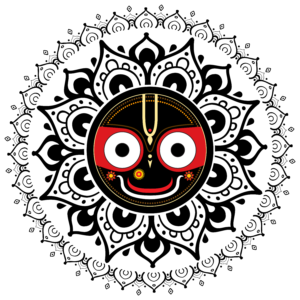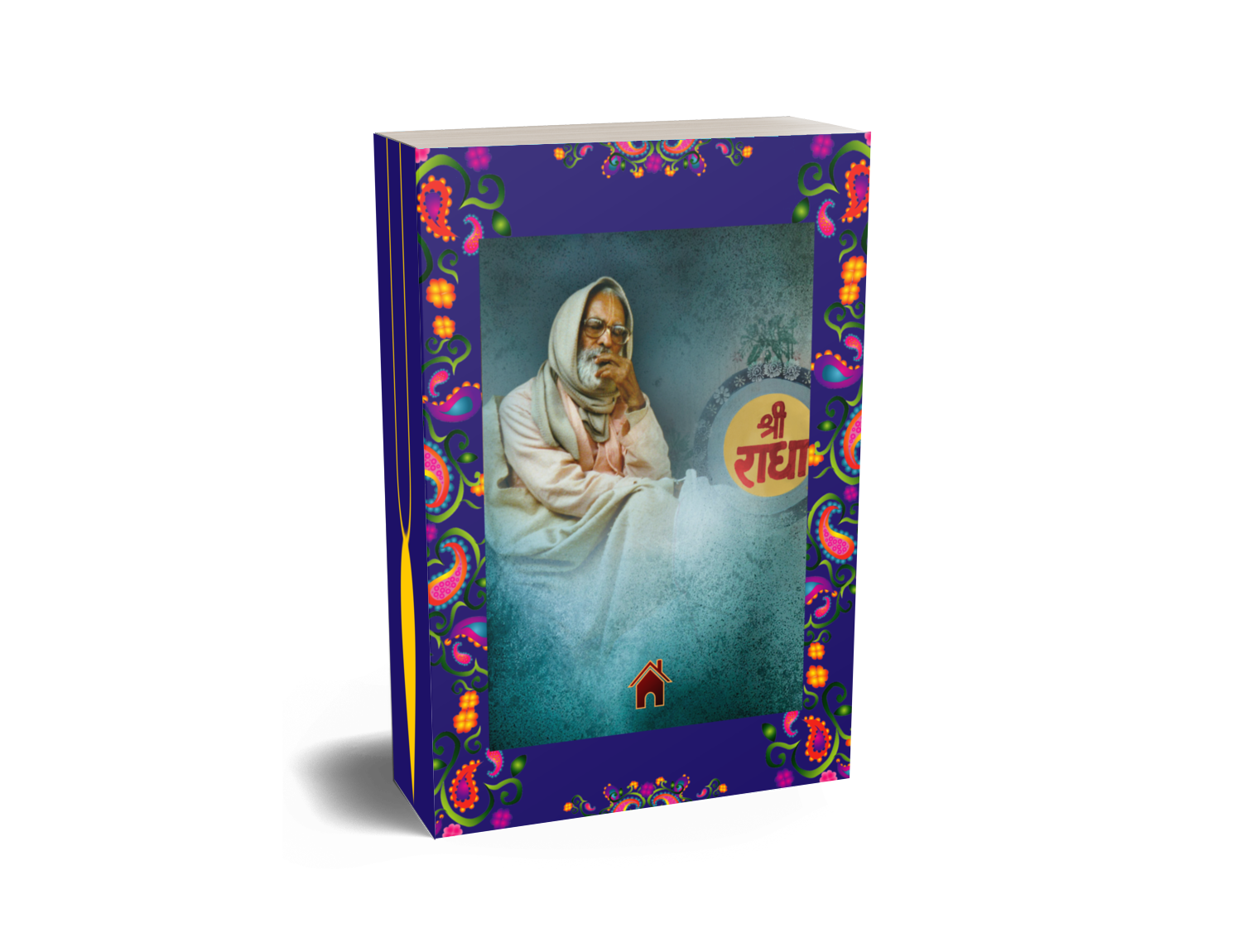

The following is a transcription of a discourse Śrīla Bhaktivedānta Nārāyaṇa Mahārāja delivered several days before Lord Rāma’s appearance day on April 12, 2000, in Mathurā
Today is a very auspicious day. It is the appearance day of Lord Śrī Rāma. Who is Śrī Rāma? He is Kṛṣṇa Himself, and Sītā is Rādhikā Herself. To establish the principles of maryādā, regulative etiquette, Kṛṣṇa appeared in the form of Śrī Rāma. His associates also appeared in rāma-līlā. Gopīśvara Mahādeva manifested as Hanumān and Baladeva appeared as Lakṣmaṇa. Śatrughna and Bharata are also manifestations of Kṛṣṇa because they are His weapons. They are, respectively, Śaṅkha and Cakra. Śrī Caitanya Mahāprabhu Himself read and glorified the pastimes of Śrī Rāma.
Vālmīki has described the pastimes of Rāma in great detail. He was a siddha-mahātmā, a realized soul. Popular 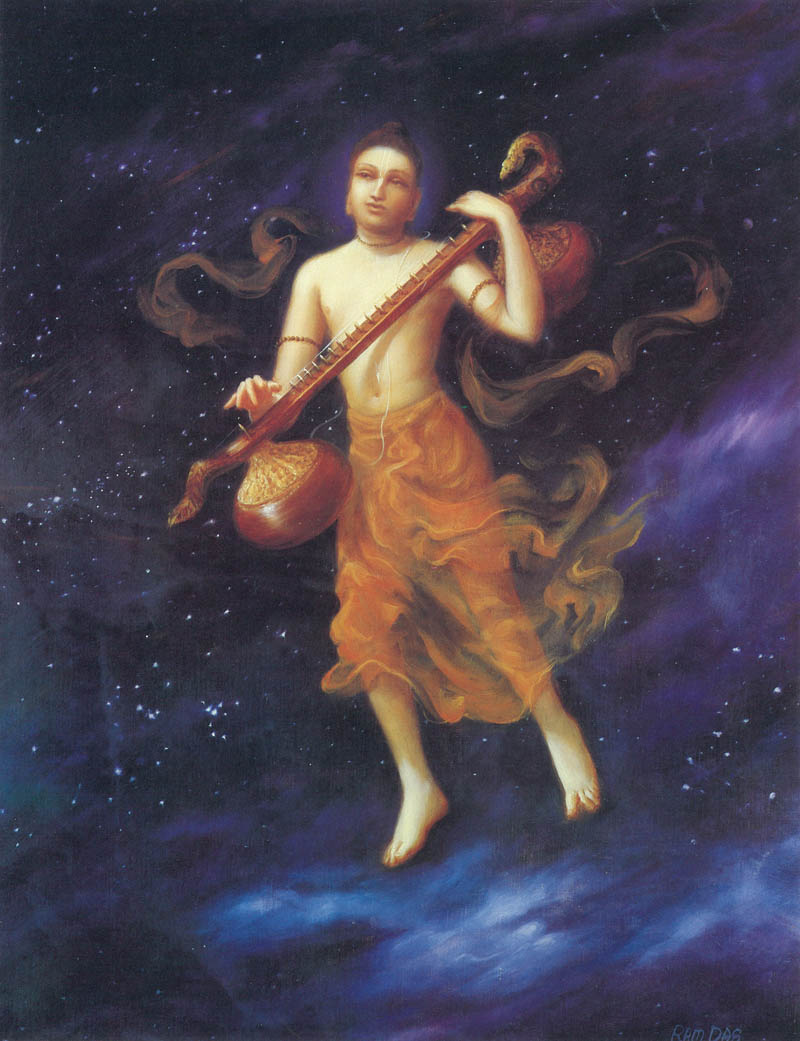 Indian stories say that in his previous life Vālmīki was a dacoit, and he used to kill people for a living. One time, he met Nārada Ṛṣi, and by that meeting, his heart was transformed, and he became a sādhu. According to the scriptures, Vālmīki was actually the son of a great ṛṣi. He performed austerities for a long time, and by that, he became perfect. One of his disciples, a very famous ṛṣi, was named Bharadvāja. Once they went to bathe in the river. After Vālmīki took his bath, he saw a male and female krauñca bird sitting in a tree. A hunter struck the male bird with his bow, killed him, and the bird fell out of the tree. Vālmīki became angry and spontaneously cursed this hunter, “How cruel you are! How could you do this? May all your happiness go away, and may you never be happy again in your life.”
Indian stories say that in his previous life Vālmīki was a dacoit, and he used to kill people for a living. One time, he met Nārada Ṛṣi, and by that meeting, his heart was transformed, and he became a sādhu. According to the scriptures, Vālmīki was actually the son of a great ṛṣi. He performed austerities for a long time, and by that, he became perfect. One of his disciples, a very famous ṛṣi, was named Bharadvāja. Once they went to bathe in the river. After Vālmīki took his bath, he saw a male and female krauñca bird sitting in a tree. A hunter struck the male bird with his bow, killed him, and the bird fell out of the tree. Vālmīki became angry and spontaneously cursed this hunter, “How cruel you are! How could you do this? May all your happiness go away, and may you never be happy again in your life.”
When Vālmīki returned to his āśrama, he thought, “Why did I become so angry? I am supposed to be a ṛṣi and have control over my senses. Life and death are very temporary, so why did I get disturbed seeing this? And how did these particular words come out of my mouth?” His words were very special. They had four gerunds— four lines with the same meter as the ślokas in Rāmāyaṇa. Therefore, he wondered why these words and this particular meter came out of his mouth.
Lord Brahmā then appeared and said, “You should write the pastimes of Lord Rāma using verses in this meter.” Vālmīki replied, “How can I do that?” At that time Nārada Muni appeared and initiated Vālmīki. He said, “You should meditate upon the pastimes of Lord Rāma in samādhi, and by bhakti, all those pastimes will manifest in your heart. Vālmīki followed those orders, and as the pastimes manifested in his heart, he began writing the Rāmāyaṇa.
Vālmīki was on the planet at the same time as Lord Rāma, but before He enacted most of His pastimes Vālmīki 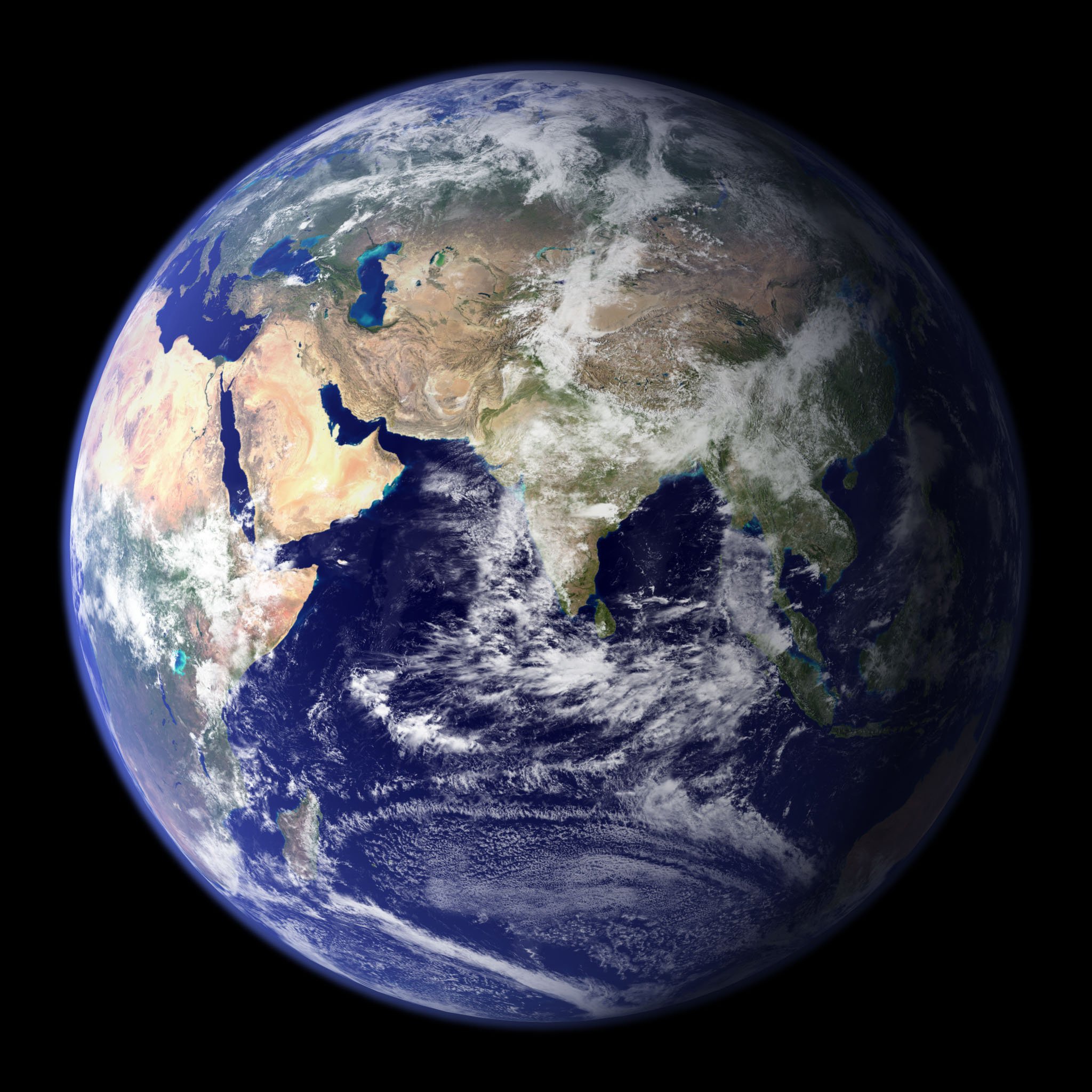 had already written about them, except for one — when Sītā entered the earth. Why did he not write about this? Because he taught Rāma’s pastimes to Lava and Kuśa. They would have been very disturbed if he had told them what happened to Sītā in advance. Just as Vyāsadeva never preached Śrīmad-Bhāgavatam, but Śukadeva Gosvāmī later preached it all over the world, similarly, Vālmīki Ṛṣi taught rāma-līlā to Lava and Kuśa.
had already written about them, except for one — when Sītā entered the earth. Why did he not write about this? Because he taught Rāma’s pastimes to Lava and Kuśa. They would have been very disturbed if he had told them what happened to Sītā in advance. Just as Vyāsadeva never preached Śrīmad-Bhāgavatam, but Śukadeva Gosvāmī later preached it all over the world, similarly, Vālmīki Ṛṣi taught rāma-līlā to Lava and Kuśa.
Mahārāja Dāsaratha is the actual father of the Lord, birth after birth, and Kauśalyā is His mother. They are eternally the mother and father of Kṛṣṇa in His different manifestations. Yaśodā and Nanda are non-different from Dāsaratha and Kauśalyā.
Mahārāja Dāsaratha was getting old and disturbed that he had not begotten a son. He, therefore, asked his spiritual master, Vasiṣṭha Ṛṣi, to perform a putreṣṭhi-yajña — a sacrifice to get a son. Half of the khīra (sweet 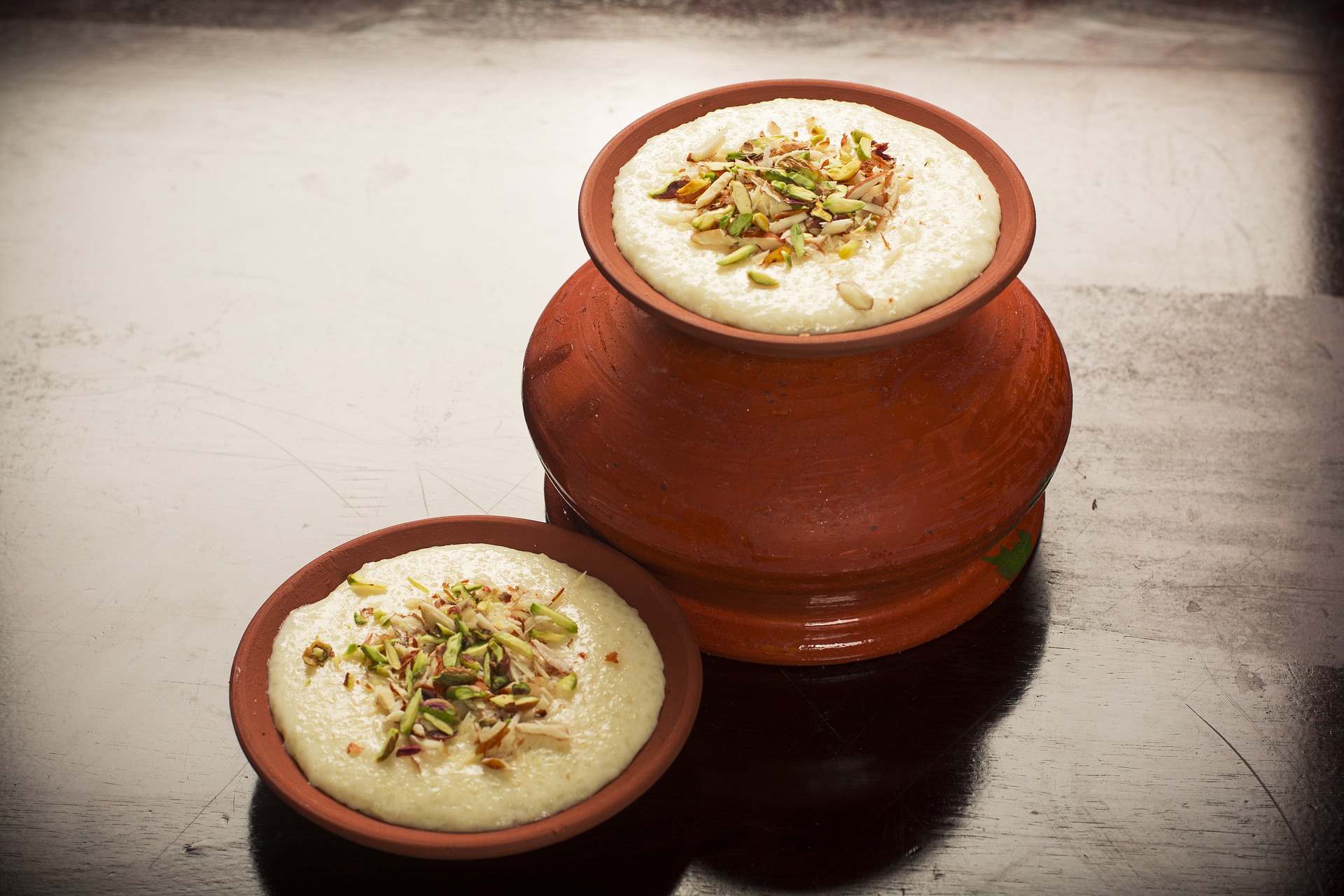 rice) offered in the yajña was given to Kauśalyā, one quarter was given to Kaikeyī, and one quarter to Sumitrā.
rice) offered in the yajña was given to Kauśalyā, one quarter was given to Kaikeyī, and one quarter to Sumitrā.
In due course of time all of the queens gave birth to sons — Kauśalyā to Rāma, Kaikeyī to Bharata, and Sumitrā to Lakṣmaṇa and Śatrughna. They were loved, they did childhood pranks, and they went to the āśrama of Vālmīki. Along with Viśvāmitra Ṛṣi, they went to siddha-āśrama, and there they killed two demons who came to disturb the ṛṣis’ sacrifices. He also delivered Ahalyā, who had been transformed into stone by the curse of her husband. Suppose you have a fruit of amla in your hands. You can see it very clearly. Similarly Vālmīki, by the blessings of Nārada, saw all these pastimes as clearly as if they were happening in front of his eyes.
Along with Viśvāmitra and Lakṣmaṇa, Rāma went to Janakapurī for the svayaṁvara of Sītā-devī. There, He broke the bow of Lord Śiva, which had been given by Paraśurāma to Mahārāja Janaka. At that time Paraśurāma appeared and manifested all the anger that was in his heart. When Rāma strung the bow without any effort, Paraśurāma then understood that Lord Rāma was the aṁśī, the actual source from whom he himself had manifested. Lord Rāma told him, “Now that this bow is in my hands, I have to kill something — either you or that anger that is in your heart. Previously he had to be angry to kill all the demoniac kings who had been ruling the earth. Now that work was over and therefore Rāma said, “I should kill that anger within you.” Paraśurāma prayed, “Please take out that anger which is in my heart. After Lord Rāma took it away, he was transformed into a ṛṣi, and after that, he performed many austerities. Lord Rāma and Sītā-devī were then married and went back to Ayodhyā.
There is a secret meaning behind the pastime of Queen Kaikeyī asking her two boons from Mahārāja Dāsaratha. Kaikeyī was not cruel. She loved Śrī Rāma more than she loved Bharata. When Rāma was a young boy, He sat on the lap of Mother Kaikeyī and requested, “I want to ask you something. When I grow up and return home after My marriage, My father will think of giving this kingdom to Me. I want you to ask him to give the kingdom to Bharata, and to send Me to the forest for fourteen years.” Hearing this, Kaikeyī fainted. When she regained consciousness she said, “I cannot do such a cruel thing.” But then Lord Rāma said, “For the whole world’s benefit, you will have to do this.” So Kaikeyī agreed.
There is another important point in this connection. When King Dāsaratha married Kauśalyā, he did not beget 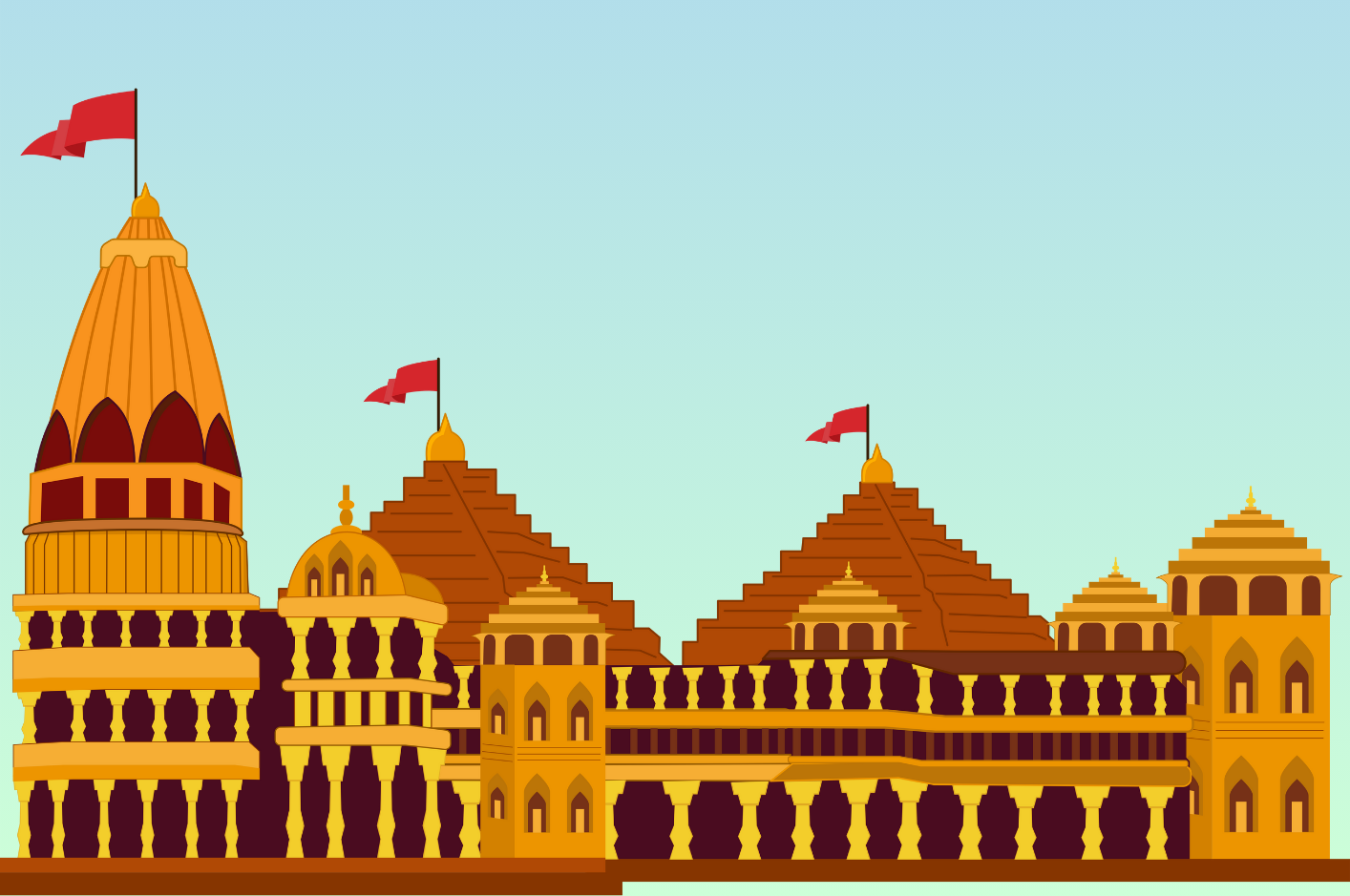 any sons from her. He further married 360 queens, but still there was no son. One day, when he was out in the forest hunting animals, he travelled to the border of Afghanistan. He was very tired and, therefore, went to visit his friend Mahārāja Kaikeya, the king of that entire area. Mahārāja Kaikeya ordered his daughter to take care of the king. The next day, very pleased by her service, Mahārāja Dāsaratha asked him if he could marry his daughter, Kaikeyī. The king said, “Yes, you can marry her, but with one condition. If she begets a son, that son will become the king of your entire kingdom.” Mahārāja Dāsaratha replied, “There is nothing that will please me more. I have no son, so if she begets a son I will be very happy to give my entire kingdom to him.” This was another reason why Bharata became the king instead of Rāma.
any sons from her. He further married 360 queens, but still there was no son. One day, when he was out in the forest hunting animals, he travelled to the border of Afghanistan. He was very tired and, therefore, went to visit his friend Mahārāja Kaikeya, the king of that entire area. Mahārāja Kaikeya ordered his daughter to take care of the king. The next day, very pleased by her service, Mahārāja Dāsaratha asked him if he could marry his daughter, Kaikeyī. The king said, “Yes, you can marry her, but with one condition. If she begets a son, that son will become the king of your entire kingdom.” Mahārāja Dāsaratha replied, “There is nothing that will please me more. I have no son, so if she begets a son I will be very happy to give my entire kingdom to him.” This was another reason why Bharata became the king instead of Rāma.
There is still another reason. One day Bharata’s maternal uncle came and requested Bharata and Śatrughna to accompany him for a few days. In the meantime, Rāma-navamī came — the appearance day of Śrī Rāma. On this day the celebration of His appearance took place, and His marriage also took place. On the day before, Mahārāja Dāsaratha had told Vasiṣṭha that he would like to give his kingdom to Rāma and make him Yuvarāja. Rāma would conduct all the duties of Mahārāja Dāsaratha in his absence and after he left the world, Rāma would become the king. Everyone was very happy to hear this. Vasiṣṭha said, “Tomorrow, Rāma-navamī, all the planetary positions will be very auspicious. You should give him the sacred initiation tomorrow.” There was no time to talk with Bharata and Śatrughna. Also, Mahārāja Dāsaratha thought, “I have already promised that I will give my kingdom to Bharata. So how can I give it to Śrī Rāma in front of him?”
When Kaikeyī heard the news about Rāma’s coronation she was very pleased, and she gave her garland to her 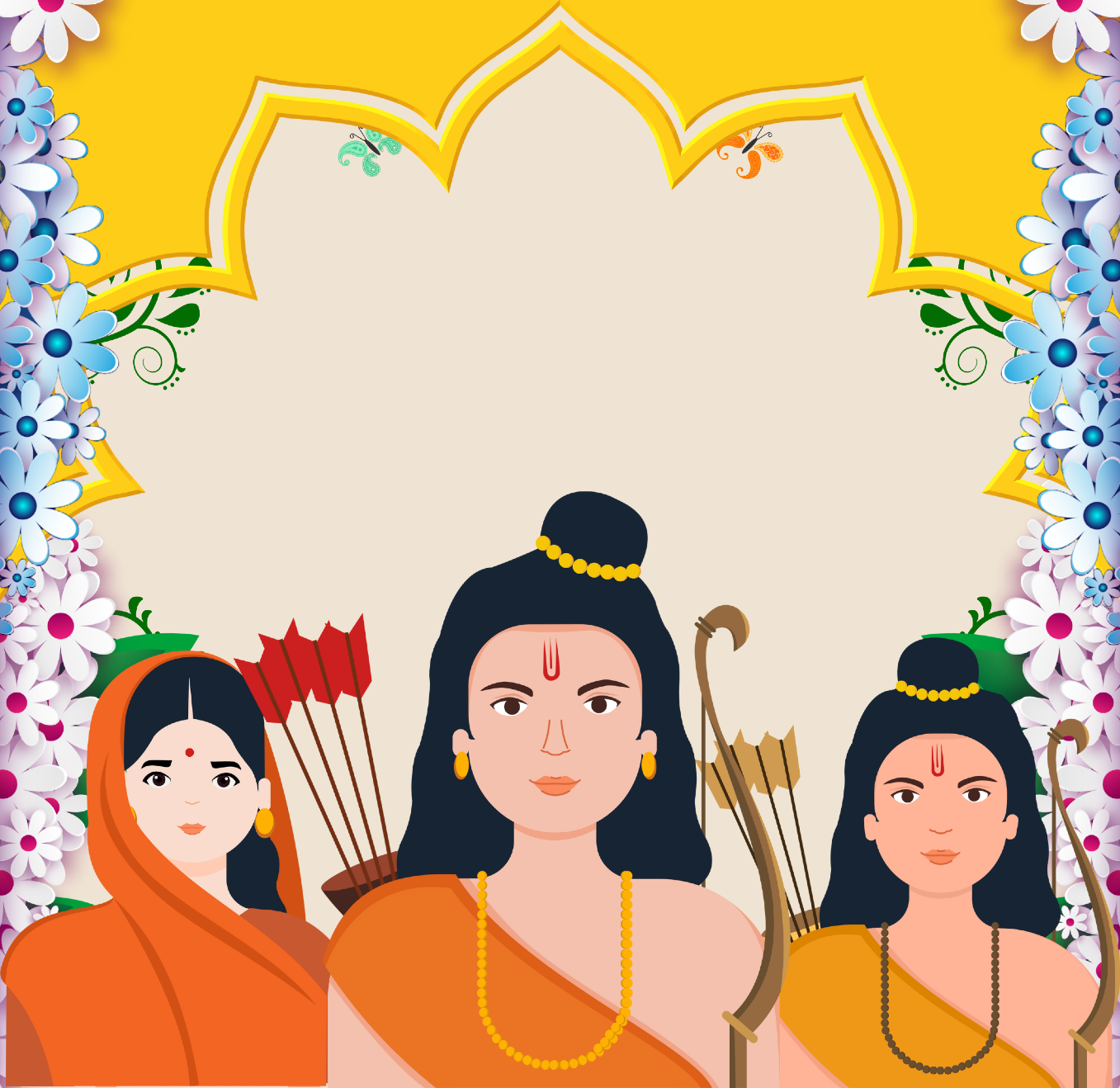 maidservant, Manthara. By the influence of the demigods and because Rāma had to perform His pastimes, Manthara’s mind became evil. She told Kaikeyī, “How can you be so foolish? If Rāma becomes the king, Bharata will become a servant, and you will become a maidservant. For the rest of your life you will have to serve Kauśalyā and Śrī Rāma.” Initially, Kaikeyī resisted and was not influenced by Manthara’s words. But then she remembered Śrī Rāma’s request to her in His youth — that she should ask Mahārāja Dāsaratha to send Him to the forest. Remembering this, she made her heart very hard. Then she went to Mahārāja Dāsaratha and asked him for her two boons. Mahārāja Dāsaratha fainted. When Lord Rāma heard what happened He was very pleased that Mother Kaikeyī had done what He had requested. He came to Mahārāja Dāsaratha and Queen Kaikeyī and she ordered Him to go to the forest, saying that this was also the desire of Mahārāja Dāsaratha.
maidservant, Manthara. By the influence of the demigods and because Rāma had to perform His pastimes, Manthara’s mind became evil. She told Kaikeyī, “How can you be so foolish? If Rāma becomes the king, Bharata will become a servant, and you will become a maidservant. For the rest of your life you will have to serve Kauśalyā and Śrī Rāma.” Initially, Kaikeyī resisted and was not influenced by Manthara’s words. But then she remembered Śrī Rāma’s request to her in His youth — that she should ask Mahārāja Dāsaratha to send Him to the forest. Remembering this, she made her heart very hard. Then she went to Mahārāja Dāsaratha and asked him for her two boons. Mahārāja Dāsaratha fainted. When Lord Rāma heard what happened He was very pleased that Mother Kaikeyī had done what He had requested. He came to Mahārāja Dāsaratha and Queen Kaikeyī and she ordered Him to go to the forest, saying that this was also the desire of Mahārāja Dāsaratha.
When Rāma was exiled and was living in Citrakūṭa, Bharata, accompanied by many citizens, went there to request him to return to Ayodhyā. On his way to see Rāma, they also passed by Bharadvāja Ṛṣi’s āśrama. Bharadvāja requested Bharata, “Please, be our guests for a day here. You should rest and take prasāda.” But Bharata replied that he had come with lakhs of people. Almost the entire population of Ayodhyā has come with me. How could they all fit in your āśrama?” But Bharadvāja said, “Please give me a chance to serve you.” By his mystic power Bharadvāja manifested an entire city, which was greater and more opulent than Ayodhyā. For each 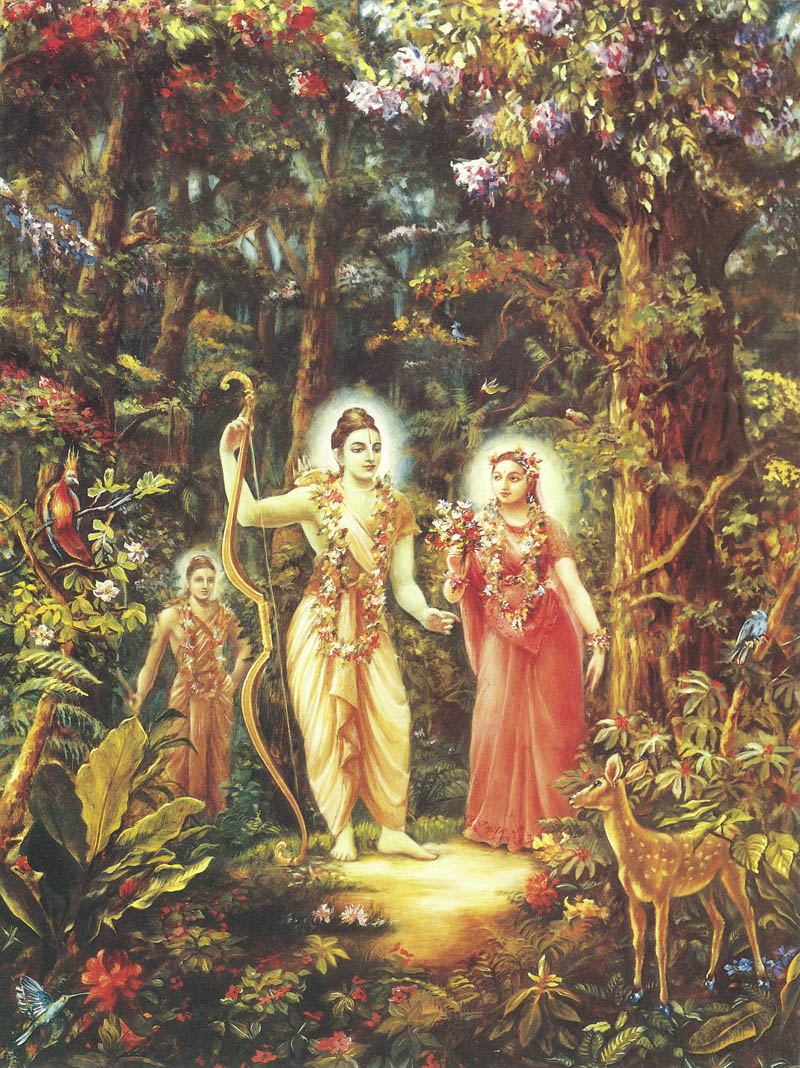 of the queens, there was a rāja-bhavana. There were so many kinds of foods and preparations — just like Annakūṭa. Mountains of prasāda were created and everyone was served.
of the queens, there was a rāja-bhavana. There were so many kinds of foods and preparations — just like Annakūṭa. Mountains of prasāda were created and everyone was served.
Kaikeyī also went to Rāma and said, “I was the one who asked for the boon that you be banished to the forest. Since I was the one who asked you to go, now I take it back. Now I am asking you to come back.” Lord Rāma replied, “No, the command was not only from you. You and father both asked it together. Father is here no more, and you are only half, fifty percent. I don’t know if it is his desire or not. So I cannot go back.”
There was an assembly meeting held, during which Mahārāja Janaka spoke with Bharata. Janaka Mahārāja described the meaning of prema. He said that real love is understanding what pleases the beloved. Janaka said, “If Lord Rāma desires to stay here, then it is better to follow what He wants and not try to force your desire on Him.”
Rāma, Lakṣmaṇa, and Sītā-devī then traveled to Citrakūṭa. There Rāma performed jalāñjali, offering water to the ancestors. Actually, Mahārāja Dāsaratha had never died, so ultimately, there was no point in His doing this. However, since He was performing narvata-līlā (human-like pastimes), he offered the water.
Sītā and Rāma went to the āśrama of Anasūyā, who gave Sītā a special ‘aṅga-vastra’ that even if she didn’t eat, her body would never dwindle. That is why, when she was at Rāvaṇa’s place, although she never ate any food given by Rāvaṇa for a whole year, her body never dwindled. Anasūyā was the wife of Atri Muni who had 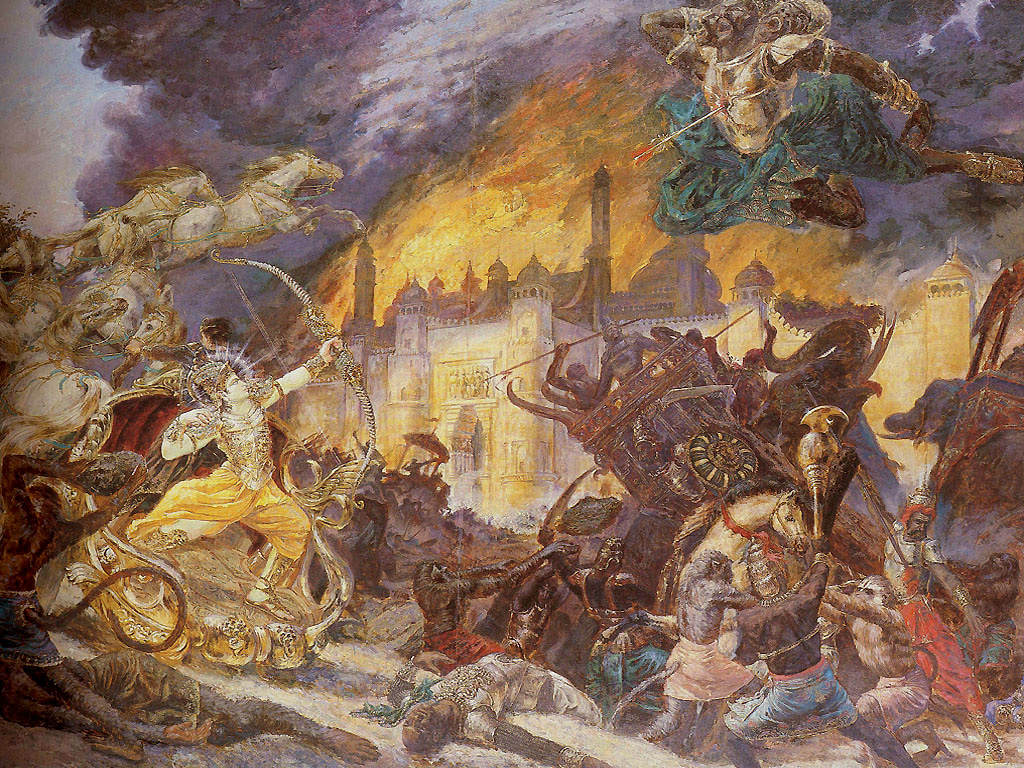 performed great austerities. By these austerities, Brahmā, Viṣṇu, and Maheśa had all appeared. She made them become her little children, and all their wives came requesting her to please let them go.
performed great austerities. By these austerities, Brahmā, Viṣṇu, and Maheśa had all appeared. She made them become her little children, and all their wives came requesting her to please let them go.
Agastya Ṛṣi gave Rāma the bow with which He killed Rāvaṇa. Then Śūrpaṇakhā came and Lakṣmaṇa cut off her nose. Then Rāma killed Khara and Dūṣaṇa. Khara means donkey. He next killed a demon named Triśira. Rāvaṇa then came to revenge Śūrpaṇakhā’s dishonour. He stole Sītā, Rāma killed Mārīca, they met Śabarī, and then at Kiṣkindhā they met Hanumān. Hanumān first appeared to Them in the form of a brāhmaṇa, to test if they were really Rāma and Lakṣmaṇa. Later, at Ṛṣyamūka Parvata Hill, Sugrīva met Lord Rāma, and they made a treaty of friendship there. After Sugrīva explained what Vāli had done to him, Lord Rāma killed Vāli.
Source: Purebhakti.com
Image(s) made possible by Pixabay.com, Krishnapath.org and/or Bhaktiart.net
Unless indicated differently, all verse translations and quotes are from the books by Śrīla Prabhupāda (Vedabase.com)